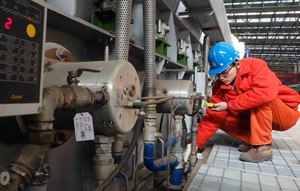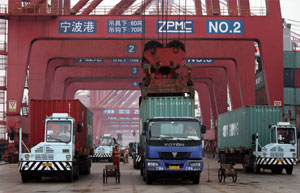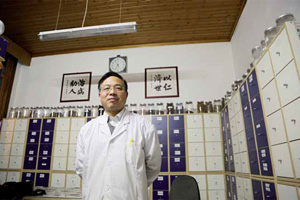High hopes for Cameron visit to China
By Zhang Chunyan ( China Daily Europe ) Updated: 2013-11-29 10:25:24Experts say the areas in which the two countries are likely to work together in the future are diverse, but will be particularly in financial services, energy and the creative industries.
The UK economy is built on free trade and a strong service sector, especially financial services. China, where the massive manufacturing sector is upgrading and outbound investment is speeding up, is a natural partner for Britain.
London has been pushing to become an offshore yuan hub. Last year the London yuan offshore market continued to grow, as did the products offered, especially in foreign exchange trading.
The City of London says that by the end of last year London had strong growth in trade-related yuan businesses. The volume of import and export financing was 33.6 billion yuan ($5.5 billion; 4.1 billion euros), double the amount at the end of 2011.
As China pushes on with reform and opening-up after the Third Plenum of the 18th of Chinese Communist Party Central Committee, there are more new opportunities for Britain to explore.
Wang Qing, a professor of marketing and innovation at Warwick Business School, says Cameron's visit is particularly significant because of its timing.
"It comes immediately after the Third Plenum, which set out an extremely ambitious goal for China for the next 10 years under the new leadership."
Barradas says: "There are some business areas where China and Britain can, and will, cooperate more in the future, such as infrastructure, energy and power."
China and Britain have signed a series of agreements on energy collaboration. The two governments are exploring opportunities for investing and working together in oil and gas, nuclear power and offshore wind farms.
Chinese investors have been heavily involved in the UK's energy sector and properties, and that is just the beginning, Wang says, adding that their appetite will only grow as the yuan continues to appreciate and asset prices in the UK become more attractive.
Fenby says: "I think UK firms should be looking at working on energy efficiency and environmental protection in China, given the great need for both."
Fenby suggests that getting rid of smog in London was less of a task than is cleaning up the air in northern Chinese cities, but it may have lessons.
When it comes to the creative industries, Wang says, Chinese interests in areas such as culture, fashion design and antiques, will also grow as the middle and upper classes in China become more discerning in their tastes and appreciate British heritage more.
The story of Atkins, a UK-based design, engineering and project management consultancy, whose business in China has grown over the past 40 years, supports this view.
Chris Birdsong, chief executive officer for Atkins' Asia Pacific business, says that in January it signed its largest multidisciplinary mainland project with a design contract for a new leisure zone in Karamay, a city in the Xinjiang Uygur autonomous region.
"Our hope for the trade mission will be to strengthen our existing business relationships, as well as building new ones with major investors and contractors operating both within China and in other regions. Exploring new opportunities with Chinese partners is an important part of our growth strategy."
Wang Mingjie contributed to this story.
zhangchunyan@chinadaily.com.cn
|
|
|
|
|
|
|
|
European Weekly
 Gear change
Gear change
'Sustainable development', 'decisive role for markets' are the new buzzwords for Chinese economy.






















